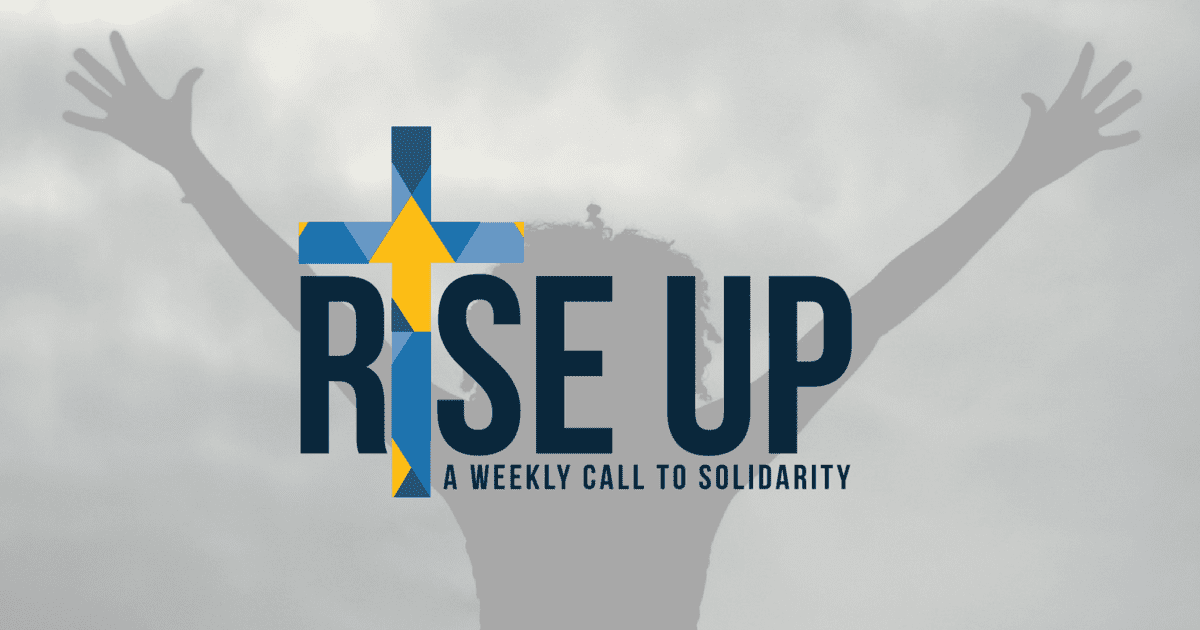Creating a Just and Equitable Society by Listening and Obedience Through Faith
BY NATHAN SESSOMS, PH.D. | July 26, 2021
Sunday’s Readings

This week’s readings focus on faith, as well as our willingness and ability to trust God in times of need. In a pivotal moment, during which one hundred people are in need of food, Elisha—described as a man of God—demonstrates faith in God’s word, rather than becoming fearful like his servant. In the end, not only did the people eat, but there was food left over. This theme is repeated (almost verbatim) in the Gospel. Meanwhile, the second reading, we are urged to live in a manner that is as profound as our calling. In summary, the readings advance the messages that God will always provide, and His provision is always greater than our needs. In response, through our faith, we are to be obedient to God’s calling.

Today’s readings are extremely relevant to the current state of our nation, and the dire need for a more just and equitable society. In this current chapter of the Racial Reckoning—and as believers—we are all called and, therefore responsible, for creating and sustaining this society. Indeed, all work focused on mitigating racism and oppression, more broadly, begins within each of us. So, if each of us is all called to, “live in a manner worthy of the call you (we) have received” as the second reading advises us, why is this so difficult?
It’s relatively easy to demonstrate faith in God and trust His word in times of comfort and serenity. However, when we feel unprepared to engage in conversation, uncomfortable advocating for others, or experience pressure from authority figures or donors, we can become fearful, and neglect to answer the call—despite the many times throughout our lives that God has demonstrated His omnipotence. However, it is in those instances—when our faith is tested—that we must remember God would not call on us to do anything without, first, ensuring that we have all we need to be successful. In response, we must recognize God’s sincere desire to provide for us, so that we might grow, develop, and, ultimately, glorify Him.
Of all the barriers to creating a more just and equitable society, listening might be the greatest. So often, members of historically marginalized and oppressed communities speak openly out of their frustration and pain, yet we do not listen. Perhaps, we hear these cries for justice but, we do not know how to assist, or we simply do not want to believe that the world can be that cruel, or we are in a rush to solve the problem. In any case, we do not listen and fail to make the personal or structural changes that can, ultimately, lead to a more just society. By actively listening to those experiencing oppression and marginalization and envisioning ourselves (or our loved ones) in similar situations, we learn, develop empathy, and can become persons for and with others.
As you seek to be a more engaged advocate, consider the following questions:
- How might God be calling you to assist in creating a more just and equitable society?
- Why might you be hesitant or fearful to respond to this calling?
- To whom might you be called to listen more attentively?
- In what ways might God intend for you to grow by listening, demonstrating faith, and being obedient?









The questions that Nathan proposes are well crafted. Assisting in creating a more just and equitable society is a formidable topic for meditation but the crux of the matter is carrying the issue out in a just and merciful way. In high schools sometimes it is seen that black and brown students are in the lowest level classes. In order to make a change, one has to thoroughly investigate all the variables that have caused this so that the proposal of change can be presented effectively. We want the change to occur so one of the variables is making sure everyone is informed. Secondly, I must attend to the mission of the school. Thirdly, I need to let everyone know that there is a way to accomplish this change and forthly, as a community we make the change. Fifthly, I support the teachers and the students in this change and the call for mercy and justice is attended to. I am somewhat fearful as some of the community might think the change is not appropriate, some might think it is too soon and other variables pop up. With the grace of the Holy Spirit I move forward with the community to proceed and foster the mercy and justice in the mission statement.
I sometimes say to myself,”Grace, you’re doing a fine job tending to the needs of other etc etc” then realize I could be doing more. Those times come forward when I read Rise Up. Thank you for keeping meme on point and leveled.
This is so timely. I don’t do enough for justice, and fear reactions, even from within my family. Concurrently I know that if I am not AGAINST terrorism, then it must mean I condone it. If I am not AGAINST bullying, then it must mean I condone it. If I am not AGAINST racism, then it must mean I condone it.
I must do more, as I am indeed against all three.
Whenever I feel like God is pushing me harder than I like I recall how a good coach, or military trainer, will say that we haven’t worked hard enough on our learning or fitness I recall how we only improve when we push our selves harder than we are used to.
If I am only a little tired, or a little improved in struggling to learn, then I am only maintaining but – if I am stressed then I improve.
Nice reflection Nathan. Thanks. Lending one’s voice to the voiceless is a risky challenge. Few are blessed with courage to do the unthinkable. The late Stan Swamy was one such noble guy. In life few supported him. But after his recent death all sing his praises.